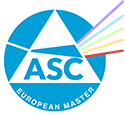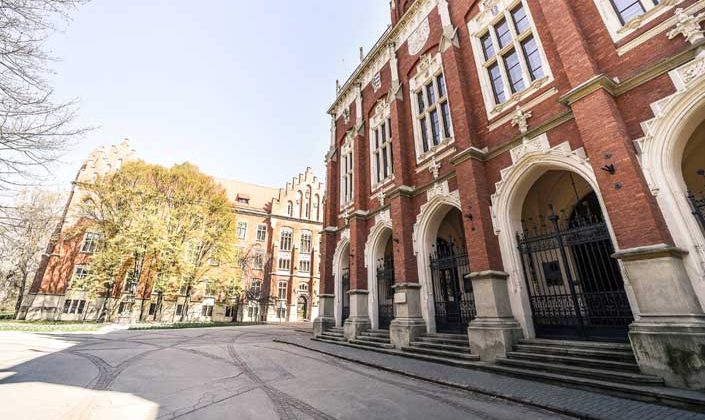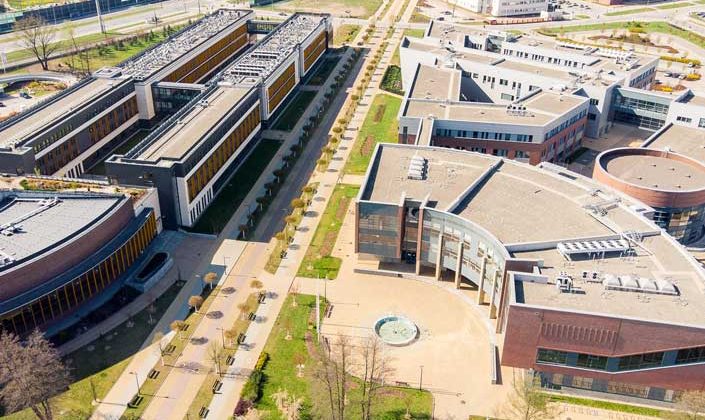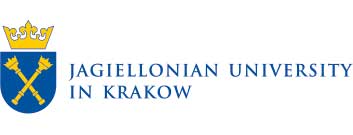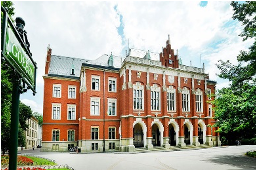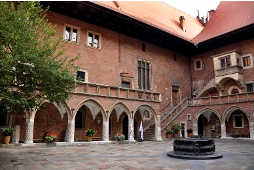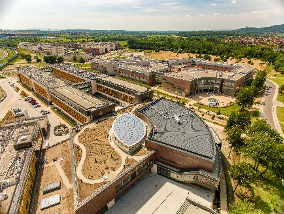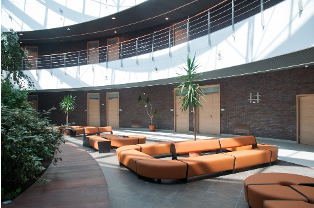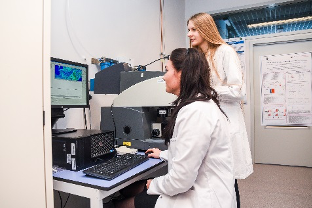Krakow, Poland
Jagiellonian university in krakow
A FEW FIGURES
- 658 years old
- 38,597 students
- 1890 PhD students
- 2275 post diploma students
- 3 campuses
- 16 faculties
- 168 fields of study
The Jagiellonian University (JU) is the oldest higher education institution in Poland and one of the oldest in Europe. Ever since it was founded (1364), Kraków has been known as a leading academic centre in Poland. Since its very beginning, the Jagiellonian University has been an international institution. Some of its students and academics were major historical figures, including world famous scholars, such as Nicolaus Copernicus or Karol Olszewski (the pioneer in liquefaction of components of air and other ‘permanent gases’), as well as the future Pope John Paul II.
Today, the Jagiellonian University comprises 16 Faculties, where nearly 4.000 academic staff conduct research and provide education to almost 40.000 students, within the framework of more than 150 different fields of study. The eminent researchers and state-of-the-art infrastructure make the JU one of the leading Polish scientific institutions, collaborating with major academic centres from all over the world.
Its widely recognized research achievements illustrate the university’s prestige in both Poland and abroad. Many interdisciplinary research centers focus their activity on conducting innovative research in medical and natural sciences (Malopolska Center of Biotechnology, JCET) to develop experimental pharmacotherapy of lifestyle diseases and targeted therapeutics and develop the collaboration with industry partners in this field. Many recent advances in materials science have been enabled by a better understanding of the electronic structure of complex systems, gained due to synchrotron studies. The SOLARIS synchrotron is the forefront of this type of device in the world. It is also the first and only synchrotron light source in Central Europe. Beamlines are dedicated to microscopy and spectroscopy with the opportunity to obtain a variable polarization of light. Research conducted at SOLARIS is supported by the latest generation cryoelectron microscope Titan Krios G3i
The Jagiellonian University is also home to numerous student research societies, where young researchers pursue their academic interests and develop friendships with people who share their passion. It is the home of excellent researchers in many disciplines, especially those which are close to ASC profile: mathematics and natural sciences. The centuries-long academic tradition of the Jagiellonian University goes hand in hand with modern approach to education and state-of-the-art technology. The 3rd Campus of the Jagiellonian University located on the outskirts of Kraków is rapidly transforming into a thriving centre of newest technology development and their practical applications
FACULTY OF CHEMISTRY
The modern Faculty of Chemistry (located at 2 Gronnostajowa Street, 3rd Campus) originates from the first chair of chemistry in the Jagiellonian University which was established already at 1782. Originally part of other Faculties (Medicine, Philosophy, and Math-Phys-Chem), in 1981 the chair was upgraded to an independent Faculty of Chemistry. The faculty staff is chiefly interested in biological and medicinal chemistry, catalysis and environmental chemistry, organic synthesis, molecular modelling, spectroscopy, forensic and analytical chemistry, advanced materials and nanotechnology. Currently, 184 academic teachers work at the Faculty. The total number of students at licentiate, MSc and PhD levels amounts to 890 on average every year.
Three main courses of study offered by the Faculty include chemistry, medical chemistry and sustainable chemistry. Other fields of study are taught jointly with other Faculties: advanced materials and nanotechnology, mathematics and natural sciences, and biochemistry.
The Faculty is very proud of being part of the Advanced Spectroscopy in Chemistry Master’s Course. At the Faculty of Chemistry, we teach the chemical sciences with emphasis on developing active learning both in the classroom and laboratory. In the classroom, students learn scientific reasoning and creative problem-solving skills ; in the laboratory, they are trained both in the use of modern research instrumentation and in the carrying out of experiments. The acquired classroom and laboratory skills are further exploited in research projects and diploma works, performed in research laboratories of Faculty members. Modern instrumentation to support research efforts in all major sub-disciplines of chemistry (analytical, inorganic, organic, physical, theoretical, biological, chemical technology, crystallochemistry) as well as in chemistry-related interdisciplinary areas is available at the Faculty. Our research infrastructure has now undergone a substantial expansion and modernization thanks to recent funding successes from the European Regional Development Fund.
In 2017, the Faculty of Chemistry was moved to 3rd Campus of the Jagiellonian University. The new faculty building is equipped with the high-technology systems and laboratory infrastructure. The building is divided into the separate teaching, research, administrative, social and technical areas. Additionally, it is equipped with advanced surveillance systems and has been designed with care for the natural environment.
